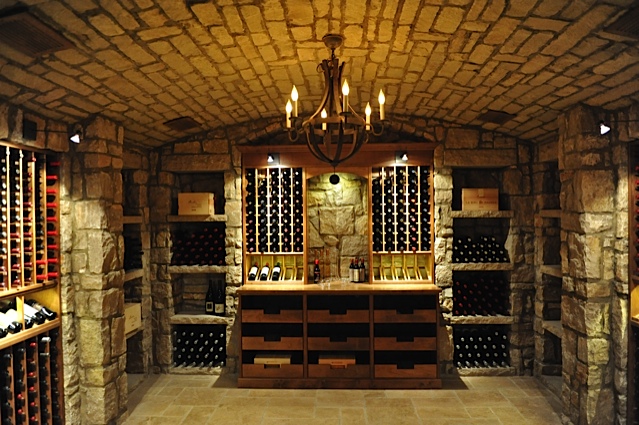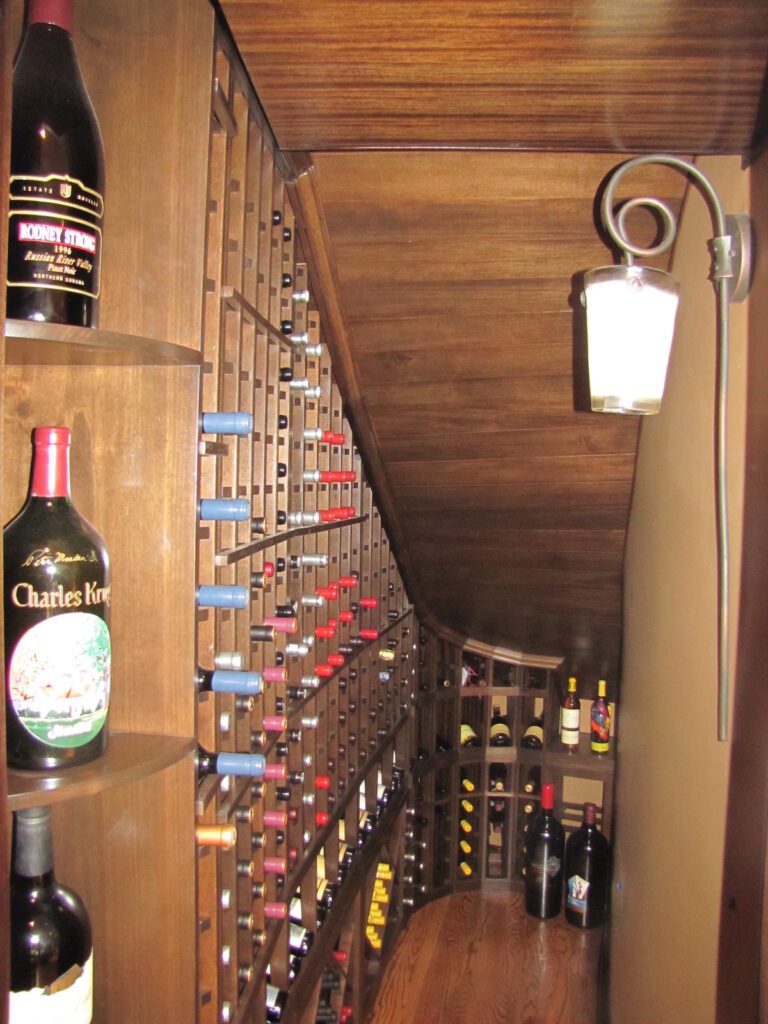When considering a location for storing wine, you want to think about factors such as temperature, humidity, light, and vibration, as each will have an effect on the long-term storage of your investment.
Ideal Wine Storage Conditions:
- 55ºF to 57°F (12°C to 14°C) ambient temperature
- No more than 5ºf annual variation in temperature
- 55% to 70% relative humidity
- No direct UV light
- No vibration
Temperature, Light, and Vibration
Ideally, you want to choose a location that is below ground level, such as a basement where temperatures are naturally cool all year long. Store your wines against subterranean walls and off of the floor if the area is particularly damp. Try to choose a location that is far from heat sources such as water-heaters, furnaces, boilers, and away from outside windows which can cause temperature fluctuations and expose the collection to ultraviolet light. The vibration caused by furnaces, boilers and water heaters can affect the long-term quality of your wine. Vibration can change the chemistry of the wine, causing it to lose quality, aroma and flavor.
Unique Storage Areas
If you’re working with less than a full-sized room, a closet-sized space can also be used as a wine storage room. When working with a smaller space, the same rules are still in effect. Lighting should be low wattage, as a smaller space can be heated by less light. The floor should be switched from carpet to a slate, ceramic or porcelain tile to keep the space cool. The door can be changed to include double paned and airtight glass so that your small-space wine room is on display to guests. Lastly, a Wine Guardian cooling unit should be used to keep your wine collection stored in proper conditions, keeping it fresh and slowing the aging process.
Humidity and Wine Storage
Humidity is also important. If you are planning on storing your wine without a wine cooling unit you will have to pay particular attention to the humidity levels within your storage space year-round. Too much humidity may cause mold growth and labels to peel. Too little humidity will cause corks to dry and premature aging of the wine. Keep in mind that a dehumidifier or humidifier may both be required depending upon the region of the country and the season of the year.
Already have a room in mind for storing your wine? See what Wine Guardian cooling system you’ll need.



